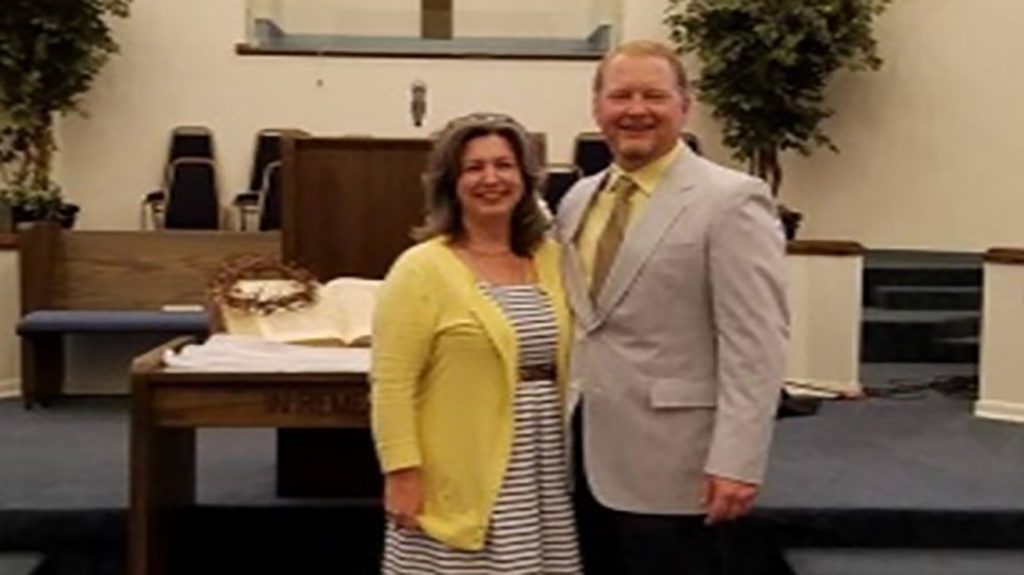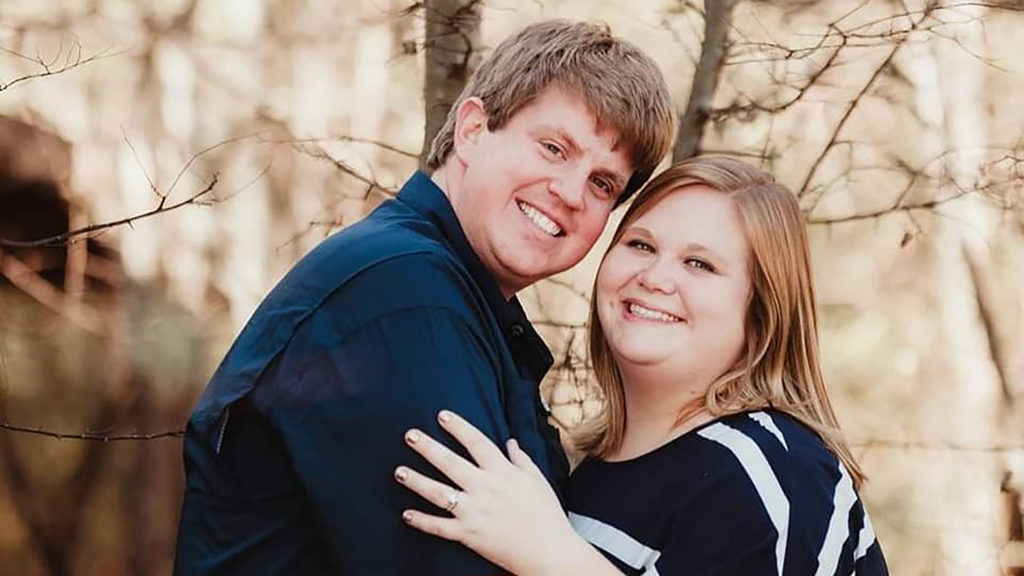At the end of the proverbial rainbow for children dealing with loss is a realistic hope that is much more valuable than any pot of gold.
Children who have lost parents to death or divorce don’t suddenly arrive over the rainbow where birds happily fly in their lives, but with the help of volunteers they can walk through reality to find their own rainbows of hope. Working through an international group known as Rainbows, one group of Baptists accomplishes this through local church peer support groups for children.
The international organization has helped more than half a million participants, from children through adults, since it was founded by Suzy Yehl Marta in Chicago in 1983. A prominent phrase on the group’s Web site is, “From hurt, through healing to hope.”
“We talk to them about facing their fears and worries,” said Susan McConnell, a facilitator of Rainbows for children ages 4 to 14 at Spring Hill Baptist Church, Mobile. “Sometimes they fear that if one parent left or died, the other may, so we talk to them about real and unreal fears and try to get them to understand the difference.”
McConnell earned her master’s degree in clinical psychology and is in private practice as a licensed family counselor at Pierce and McConnell of Mobile. She has been leading Rainbows as a volunteer at Spring Hill for about three years, and about 20 children have completed the program during that time.
Rainbows has been offered in 48 states, the District of Columbia, Colombia, Puerto Rico and Guam. It has been held in Australia, Austria, Belarus, Canada, England, Hong Kong, Ireland, Japan, Malaysia, New Zealand, Saipan, Scotland, Singapore, Switzerland and Wales.
The organization’s Web site states that its goal is building self-esteem in children, helping them understand a new family unit that has formed due to loss and helping them have a positive, healthy resolution to the changes that have occurred.
Reassurance
“It’s a way for them to express how they feel about changes in their families and to be reassured — that they’re loved.” McConnell said.
Children might express to McConnell, or to others in their group, feelings that they might not express to their parent.
“Sometimes they don’t want to communicate their feelings to the remaining parent, because they don’t want to burden the parent with more problems,” she said.
The curriculum that McConnell teaches at Spring Hill is designed for Christian settings. Rainbows offers a separate curriculum for nonchurch community groups and public schools. It is helpful, but has a more generic approach.
Despite its benefit, Rainbows is not widespread in Alabama, according to Janice Harper, a Rainbows registered director, and an Alabama Cooperative Extension System (ACES) county extension agent in urban programs with the Jefferson County office. She said a few Alabama Catholic churches initiated Rainbows a few years ago and a site or two in Mobile County exists.
Harper is working to establish a Rainbows site as an after-school program at Brookville Elementary School, near Graysville in the northwestern part of Jefferson County.
She has met with pastors, youth ministers and city and school officials, who agreed to work together for the good of the children. “If all goes well and we can get the funds o buy the curriculum, we can establish a pilot site there. I really believe it is going to happen,” she said.
Harper is one of three extension personnel who are Rainbows registered directors in Alabama; the other two are Wilma Ruffin, ACES extension family and human development specialist with urban and new nontraditional programs under ACES and Amanda Outlaw, ACES county extension agent in urban programs with the Mobile County office.
Each director seeks to work with local volunteers to begin sites for Rainbows in schools, churches, community centers, hospitals, social service agencies or any other credible entity where there is the need to help people with grief.
Rainbows’ potential for positive impact in schools, churches and in society at large is great.
“This has wider social impact since grief breeds a range of other emotions and behavior problems,” Harper explained. “The grief process and its effect on the behavior and academics of students is significant.”
“If we don’t work with children now on how to deal with issues before they become adults, they’re going to repeat the same behavior pattern as adults,” she said.
For an organization to offer a Rainbows site, a one-time fee is charged by Rainbows, but there are no fees charged to the children or their parents participating in these peer groups.
In=f an organization is interested in establishing a Rainbows site, they may contact the following registered Rainbows directors in Alabama: Janice Harper, 205-325-5342, Birmingham area; Amanda Outlaw, 251-690-8445, Mobile area; Wilma Ruffin, 256-853-4960, Huntsville area; Rainbows international organization, 1-800-266-3206.
Focus on prayer
According to McConnell in describing the specifics of the curriculum, one of the differences in the church version and the secular version is in a closing thought at the end of each lesson. In the church version it is a reflection in form of a prayer. One of them states: “Dear God, Sometimes I hurt so much I want to lash out and hurt others.”
To help the children route their negative feelings onto paper, each child is given a journal to write and draw their feelings. “We don’t let anyone else read it. Anything they say in the group is to be kept confidential,” McConnell said.
The program lasts for two six-week sessions, with a break in between for the kids to have a chance to apply what they’ve learned about dealing with loss. In the second six weeks, they plunge into adjusting to new family situations.
“We run our Rainbows group in conjunction with our divorce recovery program,” McConnell said. “We start a new group when they start a new program.”
The program creates an environment where for a little while every week, kids know that all of the other kids with them have experienced the same thing. This means they are more apt to express their true feelings.
“It’s real important that kids learn that what is happening to their families is not their fault. They may say, ‘If I had behaved better, done my chores, maybe mom or dad wouldn’t have left.’ “
This ministry can work as an evangelism tool to bring family members of the children to church, if they
Re not already involved. “It may draw people to a church. People who may not otherwise come will come when we’re meeting a specific need of a family member,” she said.
The Montgomery Baptist Association (MBA) ministers to children that experience loss and many other issues in the wider context of the Family Resource and Counseling Ministry of the MBA, according to the center’s director, Kline Johnson, who is a licensed counselor and a certified school psychologist.
“We do work with children who have experienced loss, which is not a specialty but we do see children [for many reasons],” he said.
The center is owned and operated by the MBA, the Baptist Medical Center and the Alabama Baptist Children’s Homes and Family Ministries. It is at 20 Interstate Park in Montgomery, 334-271-6241. Competent, qualified professionals who are state of Alabama Licensed Professional Counselors confidentially counsel children and adults, and a sliding scale fee is calculated based on each family’s income.
According to its Web site, the center leads families and individuals through a “Christ-centered, church-based ministry program to foster spiritual and emotional health.”





Share with others: